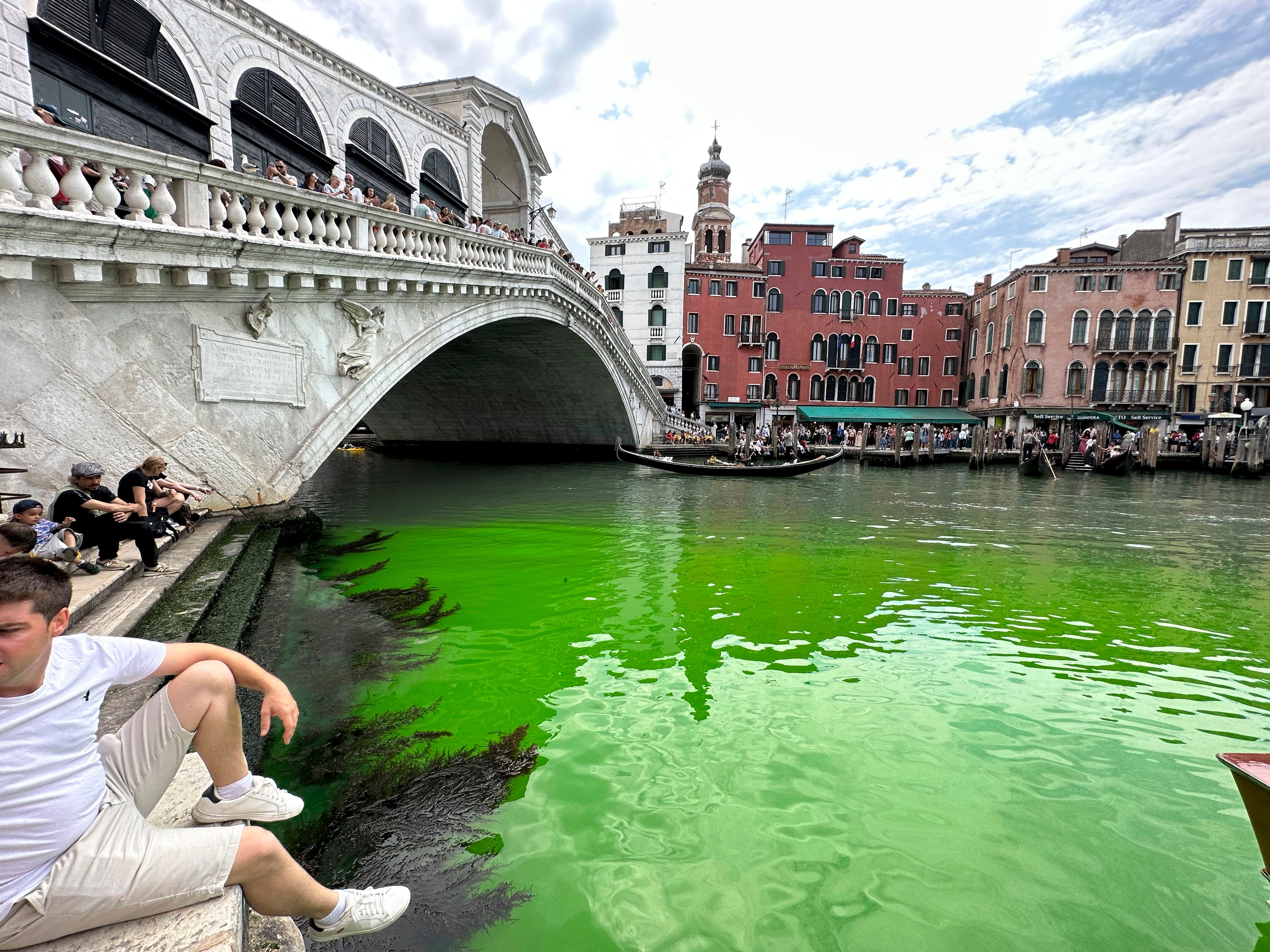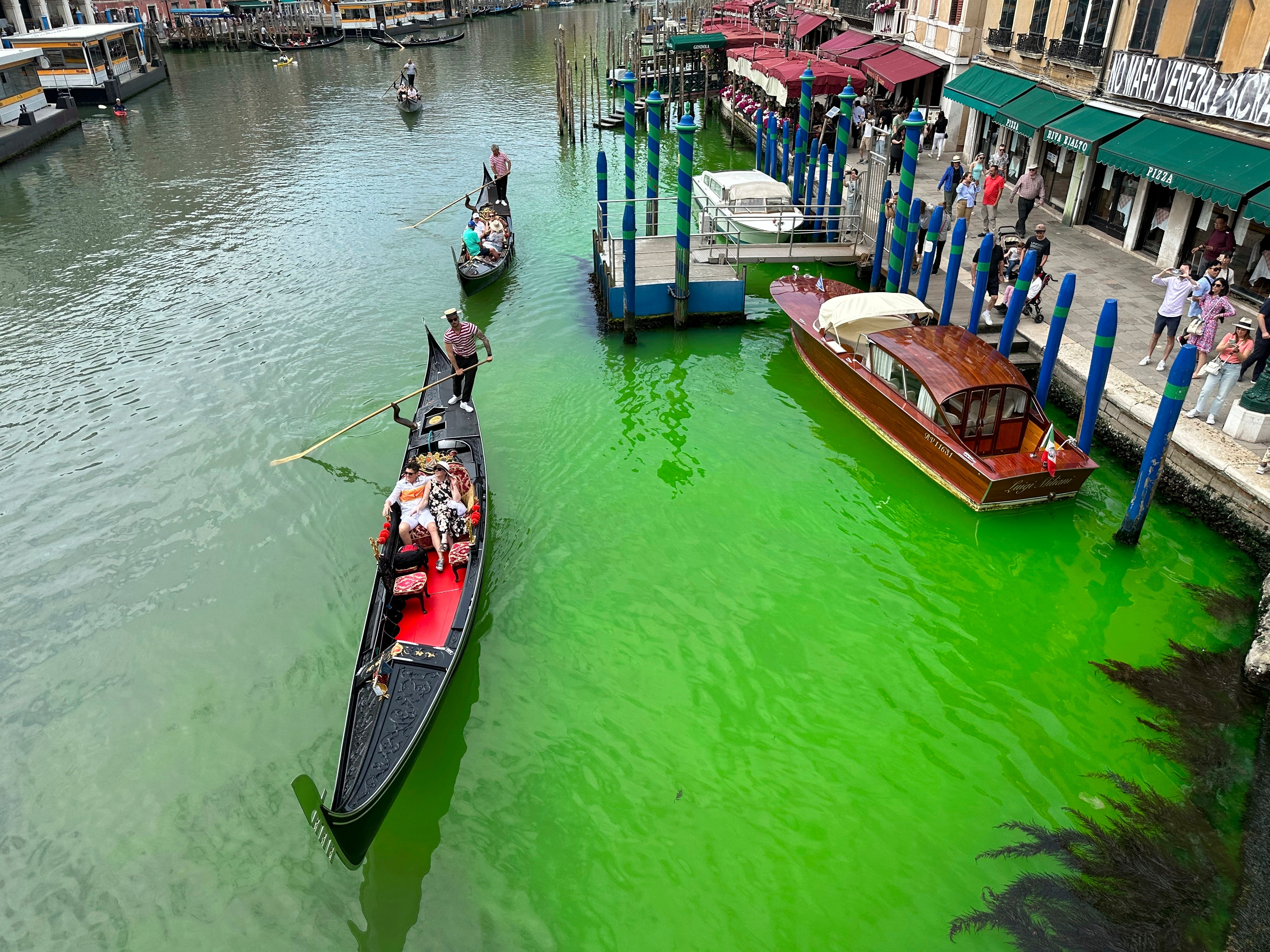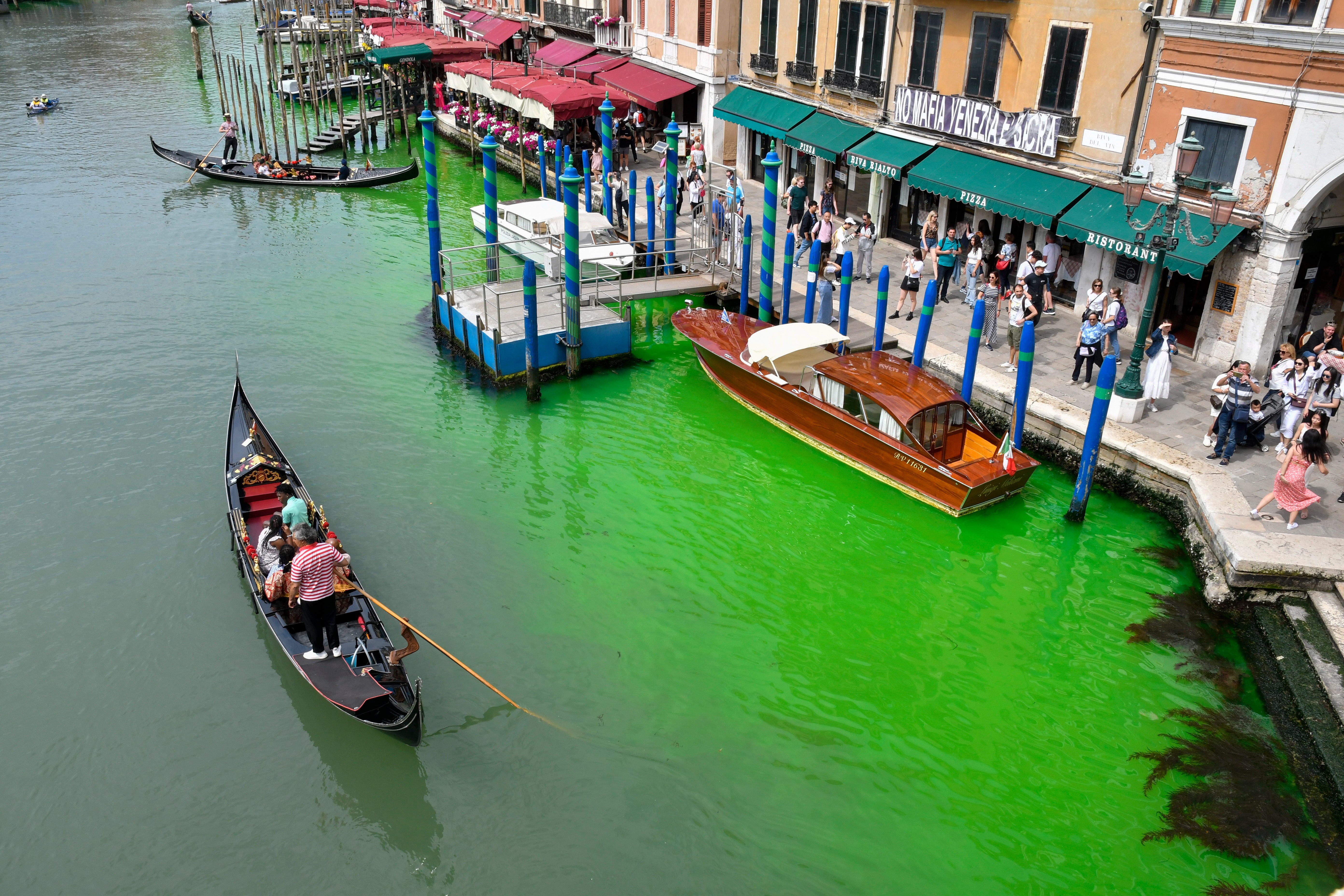Revealed: The reason Venice’s famous canals turned bright green
Part of Venice’s Grand Canal turned fluorescent green because of a chemical spillage
Your support helps us to tell the story
From reproductive rights to climate change to Big Tech, The Independent is on the ground when the story is developing. Whether it's investigating the financials of Elon Musk's pro-Trump PAC or producing our latest documentary, 'The A Word', which shines a light on the American women fighting for reproductive rights, we know how important it is to parse out the facts from the messaging.
At such a critical moment in US history, we need reporters on the ground. Your donation allows us to keep sending journalists to speak to both sides of the story.
The Independent is trusted by Americans across the entire political spectrum. And unlike many other quality news outlets, we choose not to lock Americans out of our reporting and analysis with paywalls. We believe quality journalism should be available to everyone, paid for by those who can afford it.
Your support makes all the difference.Visitors to Venice’s famous canal network were in for a surprise this weekend when part of the water turned bright green.
Photos of a section of the canal near the Rialto Bridge were shared on social media after a fluorescent green stretch patch appeared in the Grand Canal in the Italian city on Sunday.
The alarming site prompted police to launch an investigation into whether a chemical had been planted in the water by climate activists.
Now, environmental officers have confirmed the discolouration was caused by a spillage of the chemical fluorescein.

Photos show how a portion of the canal near an embankment lined with bustling restaurants turned a shocking green colour and the local fire service also shared footage as a number of gondoliers passed through the discoloured water.
But experts have since confirmed that fluorescein isn’t toxic and explained that it is commonly used in underwater construction projects to identify leaks.

However, the high concentration of the substance found in the Venice canals suggests it probably wasn’t an accident, CNN reported.
Tests are now being carried out to help identify exactly how much of the substance was in the water, with results expected later this week.
It comes after a number of recent incidents across Italy in which environmental groups have targetted landmarks and monuments with colours and dyes.

Activists recently used charcoal to turn the water of the famous Trevi Fountain in Rome black as a mark of protest against the use of fossil fuels.
Unlike in previous incidents, no activist groups have come forward yet to claim responsibility for the green canals in Venice.
Fluorescein is also used in medicine, specifically in eye drops, to help identify lesions, according to the National Institute for Health and Care Excellence (NICE).



Join our commenting forum
Join thought-provoking conversations, follow other Independent readers and see their replies
Comments